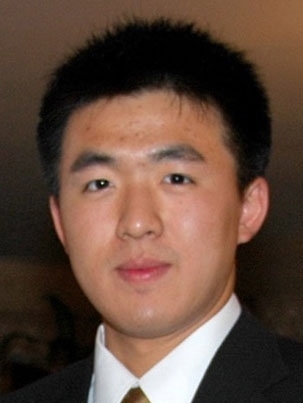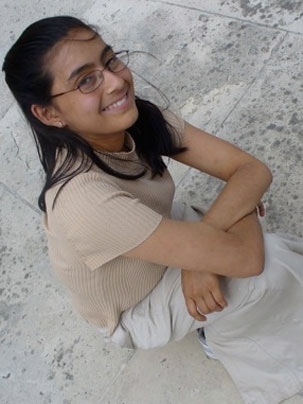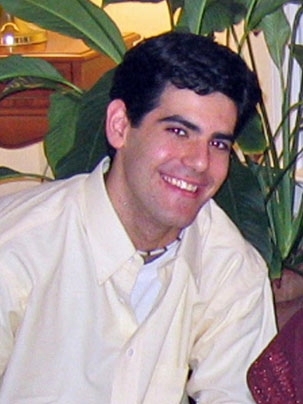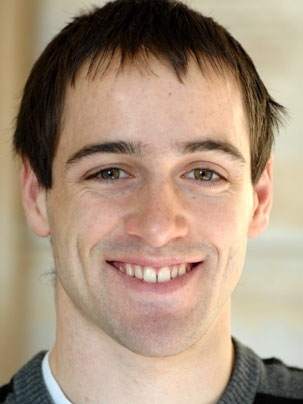Four MIT students have won Marshall Scholarships, allowing them to study for up to two years at a British university.
With four winners, MIT led U.S. colleges and universities in the number of students awarded the prestigious scholarships this year.
"For half a century, the Marshall Scholarships have offered some of America's most creative young minds a chance to stretch their experience and deepen their understanding, while building bonds between the United States and Great Britain," said MIT President Susan Hockfield. "At MIT, we take it as a signal honor that the Marshall Committee chose to grant this privilege to four of our undergraduates this year. We are very proud of their accomplishments and look forward to seeing how they turn these extraordinary educational opportunities to the service of the world."
Marshall Scholarships, given every year since 1953, are awarded by the British government as a national gesture of thanks to the United States for aid received under the post-World War II Marshall Plan. Up to 40 American students are selected each year to study at graduate level at a British institution in any field of study. Notable Marshall Scholars include U.S. Supreme Court Justice Stephen Breyer, inventor Ray Dolby and Pulitzer Prize-winning columnist Thomas Friedman.
MIT's winners plan to study a range of topics, from astronomy and epidemiology to engineering and public health. The winners are:
Richard Lin
Lin, of Richfield, Ohio, and Taiwan, is a double major in materials science and engineering and biology, with double minors in history and applied international studies. His great passion, however, is traveling to developing countries, gaining an understanding of people's needs, and engineering devices to make their lives better. While studying abroad at Oxford University, Lin allied himself with Oxfam International to engineer a new device that would provide a low-cost solution to the problem of cholera outbreaks in rural regions of developing countries. Oxfam had been manually chlorinating wells thrice daily, an inefficient use of manpower. Lin saw the problems inherent in this system, so he led a team to create an inexpensive apparatus that would chlorinate the wells without the need for attending personnel. The device proved so successful that, in addition to Oxfam adopting it, numerous other non-profit organizations have sought to buy it.
Lin plans to dedicate his life to similar service efforts and will join Oxford's School of Public Health before entering medical school. Kimberly Benard, program advisor for Distinguished Fellowships, said: "Richard's dedication to improving the lives of others and his notable experience as a change agent makes us confident that Richard will effect lasting change in his future career in public health."
Anjali Tripathi
Tripathi, from Woodland Hills, Calif., arrived at MIT having already proven herself as a gifted scientist, through two internships with NASA's Jet Propulsion Lab and a research project in Caltech's Seismological Laboratory. Those who know Tripathi, a physics major, universally characterize her as an independent thinker who thrives on tackling the most ambiguous and difficult astrophysics and astronomy questions. Linn Hobbs, professor of materials science and engineering, nuclear science and engineering, and chair of the Presidential Committee on Distinguished Fellowships, said: "Anjali combines an intelligent mind with a compassionate heart and a meticulous fascination for physics and maths. I am convinced that Anjali will make notable and lasting contributions to her chosen field of astrophysics and to the promotion of science in the greater public arena."
Tripathi currently serves as the president of the MIT Society of Physics Students, volunteers as a tutor in the Cambridge Public School System. Additionally, she has been a member of MIT's Solar Electric Vehicle Team for four years. A lifelong pianist, sometime team sailor, and occasional violinist, Tripathi has even built a violin from scratch. Tripathi also has the distinct honor of having twice appeared as a contestant on the TV game show "Jeopardy": first, at the age of 11, and, most recently, on a reunion show, which she won.
Tripathi will travel to Cambridge University to study at the Institute of Astronomy and then to earn an advanced certificate in mathematics.
David Reshef
Reshef, of Livingston, N.J., graduated from MIT in June with a bachelor's degree in electrical engineering and computer science, and is currently completing the requirements for an MEng degree in the same field. He has supplemented his academic training with research in the field at both Johns Hopkins School of Public Health and Harvard Medical School-Massachusetts General Hospital (MGH). In a project with Pardis Sabeti SB '97, a former Rhodes Scholar, Reshef has been using his computational skills to detect epidemiological patterns in malaria outbreaks. He has designed a software program that can analyze prodigious numbers of datasets within minutes to produce interactive charts detailing the various similarities outbreaks share, such as population density, proximity to wells, religious makeup of the community, and so forth. This software suite has attracted great interest from the public health community and has inspired such groups as the Center for Disease Control and the Clinton Foundation to provide Reshef with datasets to be analyzed.
Outside of his research, David still finds the time to pursue his favorite pastimes. He has been a key member of the varsity Cross Country and Track & Field team since his sophomore year. He also has a passion for both magic and photography. He came to magic as a child and has continued to practice it to this day. He now finds this former amusement as an effective way to break the ice with sick children (he performs for the pediatric ward in MGH) and others he meets on his volunteer trips.
Benard said: "David is a driven young man who has already made lasting contributions to the study of infectious diseases." He wishes to pursue a doctorate in epidemiology at Oxford University.
Nathaniel Sharpe
Sharpe, a mechanical engineering major from Canton, Mass., has supplemented his coursework with academic research and a technical internship. After participating in an engineering design course where he developed a robotic arena that placed third in an MIT competition of 135 participants, Sharpe was invited to compete in the 2007 International Design Competition, Robocon, in Thailand. He and his team came in second after creating a robot capable of navigating a particularly challenging course. In fall 2006 and spring 2008, Sharpe performed research in the BioInstrumentation Lab at MIT that was concerned with developing novel modern medical instrumentation. Most recently, Sharpe spent the summer working at Apple, in Cupertino, Calif., where he redesigned an iPod for use by paraplegics. Sharpe has excelled at finding innovative solutions to complex problems, and has decided that he wishes to continue this sort of work at Cambridge University. He plans to use his mechanical engineering skills in his future career in designing sustainable energy solutions, and therefore proposes to earn two degrees: an MPhil in Engineering for Sustainable Development and an MPhil in Engineering.
An award-winning juggler, Sharpe traveled to Israel this past summer to lead a beginners' workshop on juggling for children at the Al-Rowwad Cultural and Theatre Training Center in the Aida Refugee Camp. This camp houses approximately 4,000 Palestinian refugees, with 40 percent of the occupants below the age of 18. The Al-Rowwad Culture and Theatre Training Center attempts to provide a healthy environment to help relieve some of the stress of living in war conditions for these children.
"Nate is wholly original. An accomplished athlete, innovative and world-renowned juggler, brilliant engineer, and a compassionate volunteer, Nate defies all stereotypes," said Hobbs.
A version of this article appeared in MIT Tech Talk on December 3, 2008 (download PDF).









